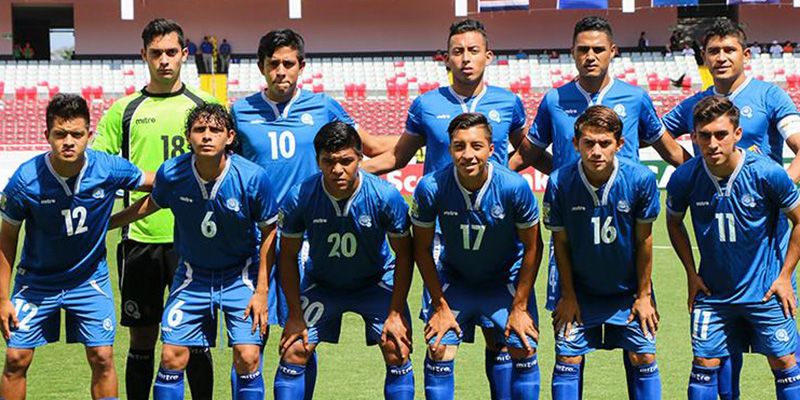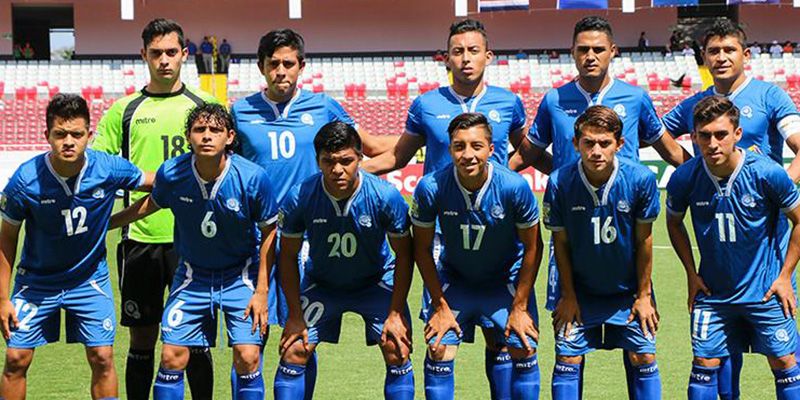Five Things To Know: El Salvador U-20 MNT
What you should know about the U.S. U-20 MNT's opponents ahead of Friday's decisive World Cup Qualifying match



On Friday, the U.S. U-20 MNT takes on El Salvador for the right to advance to the 2017 FIFA U-20 World Cup (6:30 p.m. ET – UDN, CONCACAF Facebook) and the 2017 CONCACAF U-20 Championship Final.
Here are five things to know about the team that stands in the way of the U-20 MNT punching its ticket to Korea Republic.
One of many Spanish-speaking countries in Central America, The Republic of El Salvador, translates literally to “Republic of the Savior”. Bordered by Guatemala to the west and Honduras to the north and east, El Salvador touches the Pacific Ocean and despite being the smallest country in Central America, is also the most densely populated in the region with 6.3 million people calling the nation home.
In terms of currency, El Salvador long-used the colón, but shifted to the U.S. dollar in 2001 and its chief export continues to be coffee.
Prior to the tournament serving as qualification for the FIFA U-20 World Cup, El Salvador were crowned champions of CONCACAF in 1964. Since the tournament shifted format to determine the region’s FIFA U-20 World Cup participants in 1977, El Salvador has qualified just once, doing so in 2013 when they finished third in the tournament.
At the 2015 tournament, El Salvador took on the U.S. in a similar situation to Friday’s game, with the two sides meeting in a one-game playoff to determine one of CONCACAF’s two final spots at the U-20 World Cup in New Zealand. The U.S. won the match 2-0 behind goals from Ben Spencer and current MNT attacker Paul Arriola, setting up their Quarterfinal run at the tournament proper.
El Salvador continued their strong performance from 2015 early at this year’s tournament. Los Cuscatlecos used a 65th minute strike from Roberto Domíguez to upset hosts Costa Rica 1-0 in their opening match on Feb. 19. Three days later, Domíguez struck again, followed by second-half tallies from Fernando Castillo and Josue Rivera to down Bermuda 3-1.
Already advanced to the Classification Stage, El Salvador fell 2-1 to a Trinidad & Tobago side still hoping to join them in the next round, but still finished atop the group as Costa Rica booked their place with a 2-1 win vs. Bermuda.
Advancing to group that featured regional powers Mexico and the USA, El Salvador bore the brunt of El Tri’s 1-0 defeat to the U.S. U-20 MNT on Monday, falling 6-1 to Mexico in Wednesday’s contest.
Despite that result, El Salvador can still qualify to the 2017 FIFA U-20 World Cup with a three-goal win against the U.S. in Friday’s Classification Stage finale.
The El Salvador U-20 roster is mostly made up of domestic-based players, but does feature two that play in the United States: goalkeeper Alan Carrillo of California Rush and midfielder Hector Quinteros of Georgia United.
Goalkeepers (2): Alan Carrillo (California Rush/USA), Mario González Martínez (Luis Angel Firpo)
Defenders (5): Diego Chavez (Turin FC), Roberto Domínguez Fuentes (Santa Tecla), Óscar Menjivar Oviedo (CD UES), Ronaldo Gómez Rodriguez (CD Aguila), Denilson Vidal Rosales (CD FAS)
Midfielders (10): Jonathan Aguilar (Turin FC), Walter Ayala Chiguila (CD Once Lobos), Amilcar Bermudez (Luis Angel Firpo), Fernando Castillo (CD FAS), José Contreras (Alianza FC), Diego Cartagena Martinez (Turin FC), Hector Quinteros (Georgia United/USA), Kevin Reyes (Santa Tecla FC), Marcos Rodriguez (Sonsonate FC), Josué Santos Olivares (CD FAS)
Forwards (3): Brayan Paz Ayala (CD Aguila), Marvin Márquez Ayala (Alianza FC), Josue Rivera Arevalo (CD FAS)
El Salvador’s Men’s National Team has twice qualified for the FIFA World Cup, doing so in 1970 and 1982. Their most recent qualification success at senior level came in 2009, when Carlos de los Cobos led the side to the Final Round of qualifying for the 2010 FIFA World Cup where they finished fifth in the six-team Hexagonal.